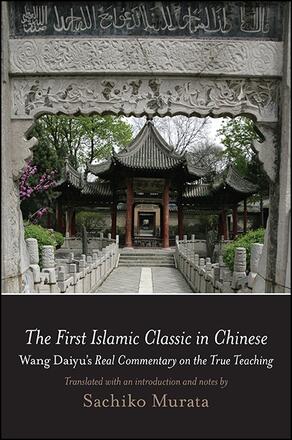
The First Islamic Classic in Chinese
Wang Daiyu's Real Commentary on the True Teaching
Alternative formats available from:
A translation of Wang Daiyu’s Real Commentary on the True Teaching, the first and most influential work written in the Chinese language on Islam.
Description
Published in 1642, Wang Daiyu's Real Commentary on the True Teaching was the first significant presentation of Islam in the Chinese language by a Muslim scholar. It set the standard for the expression of Islamic theology, Sufism, and ethics in Chinese, and became the literary foundation of a school of thought that has been called "Muslim Confucianism." In contrast to Muslim scholars writing in every other language, Wang avoided Arabic words, opting instead to reconfigure the religion in terms of Chinese concepts and categories. Employing the terminology of Neo-Confucian philosophy, his overview of Islam is thus both congenial to the mainstream Islamic tradition and reaffirms Confucian teachings about the human duty to establish harmony between heaven and earth. This book will appeal to those curious about the manner in which Islam has flourished in China over the past thousand years, as well as those interested in dialogue among religions and the significance of religious diversity.
Sachiko Murata is Professor of Religious Studies at Stony Brook University, State University of New York. Her books include The Tao of Islam: A Sourcebook on Gender Relationships in Islamic Thought, also published by SUNY Press.
Reviews
"…The First Islamic Classic in Chinese will appeal to scholars in the field of comparative religion and intellectual history of Islam. The book will also add to the understanding of those interested in the conditions of Muslims as minorities and in the new meanings Islam gains through interaction with non-Muslim religious and intellectual traditions. The value of the book in the field of Chinese studies also cannot be ignored." — Dao
"…[an] invaluable translation … While the volume will be most welcomed by specialists it will also be useful for teachers who want to incorporate primary documents about Islam into their courses on Chinese religions or Islam. Both the novice and the expert will gain much from reading through The First Islamic Classic." — Reading Religion